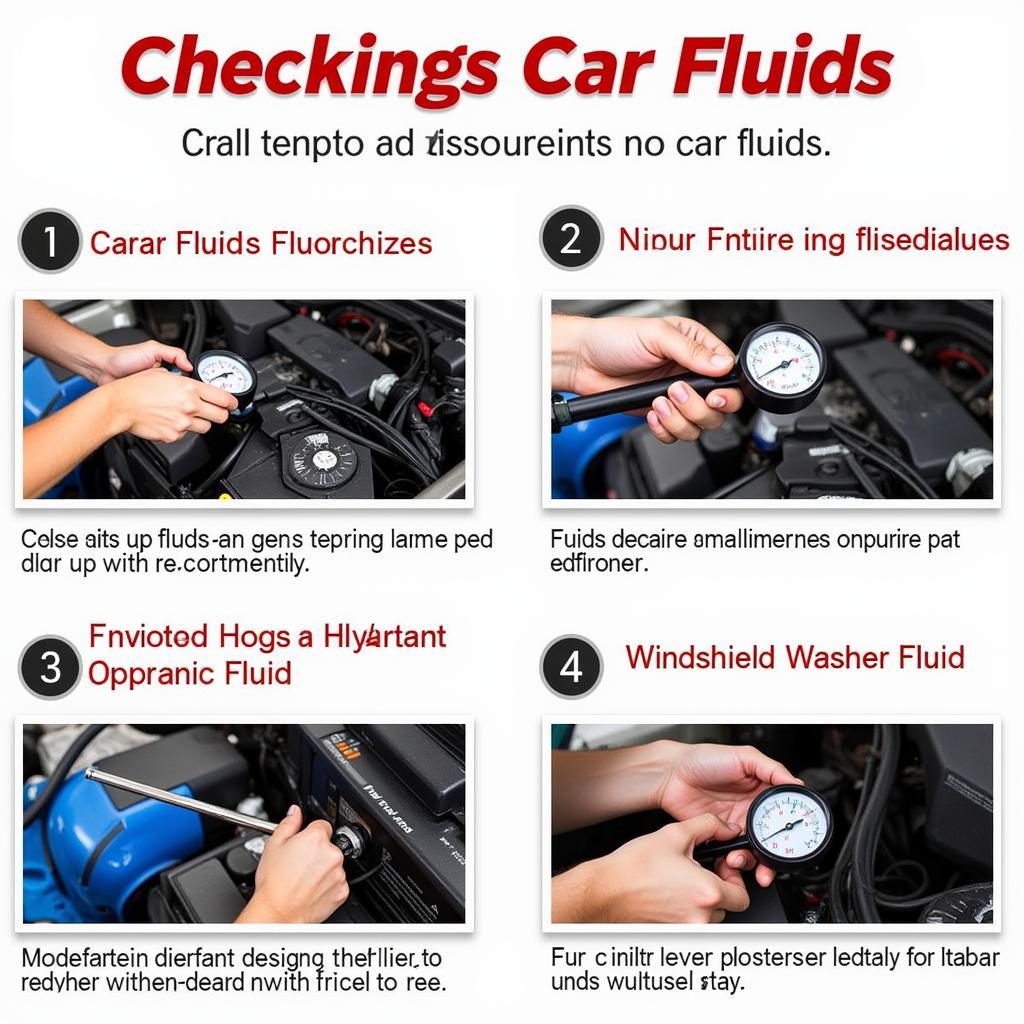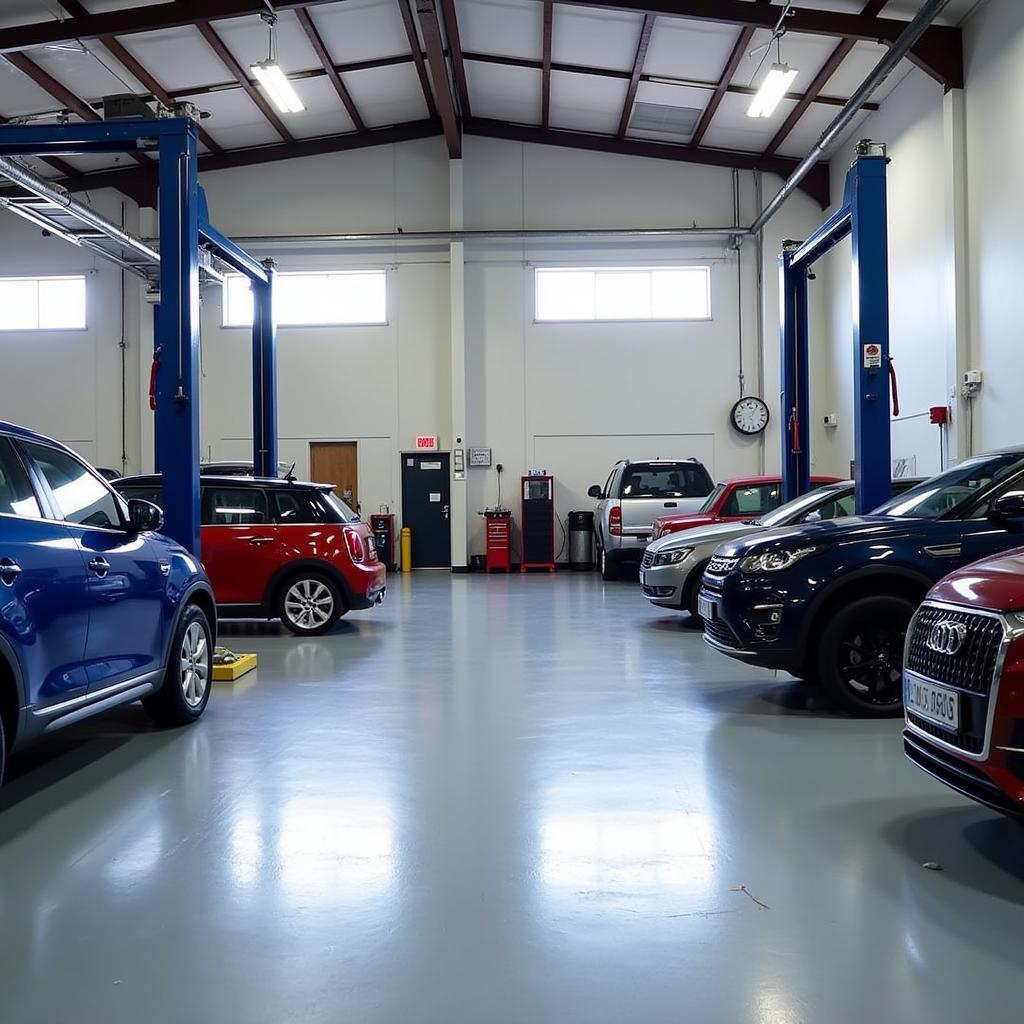What Gets Changed on a Full Car Service?
A full car service is a comprehensive check and maintenance procedure designed to keep your vehicle running smoothly and safely. It involves a series of checks, replacements, and adjustments, exceeding a basic service in scope. What exactly gets changed on a full car service can vary depending on the make and model of your car, its age, and mileage, as well as your chosen service provider. However, there are some common elements you can expect.
Understanding what gets changed during a full car service is essential for every car owner. It not only empowers you to discuss your car’s needs effectively with your mechanic but also helps you budget appropriately. This article provides a comprehensive overview of what a full car service entails, ensuring you’re well-informed and prepared for your next service appointment. You might also be interested in reading about what is checked on a car service.
Essential Replacements During a Full Car Service
Several components are routinely replaced during a full car service to maintain optimal performance. These include:
- Engine Oil and Oil Filter: Old engine oil loses its lubricating properties and can lead to increased engine wear. Changing the oil filter ensures contaminants are removed.
- Air Filter: A clean air filter allows the engine to breathe efficiently, maximizing fuel economy and performance.
- Spark Plugs (if necessary): Worn spark plugs can cause misfires, reduced fuel efficiency, and difficulty starting.
- Fuel Filter: A clogged fuel filter can restrict fuel flow, leading to performance issues.
These replacements are crucial for preventing potential problems and ensuring your car runs smoothly.
Fluid Checks and Top-Ups: Maintaining Vital Systems
Beyond component replacements, a full car service also includes checking and topping up essential fluids:
- Coolant: Maintains the engine’s operating temperature, preventing overheating.
- Brake Fluid: Essential for proper brake function.
- Power Steering Fluid: Ensures smooth steering operation.
- Windshield Washer Fluid: Keeps your windshield clear for optimal visibility.
These fluids play vital roles in the overall functioning of your vehicle.
Why are Fluid Checks Important?
Regular fluid checks are crucial because low fluid levels can indicate leaks or other problems that need attention. Addressing these issues early on can prevent costly repairs down the road. You can find more information about maintaining your car’s service history by checking out this article: how to check your cars service history.
 Checking and Topping Up Car Fluids
Checking and Topping Up Car Fluids
Comprehensive Inspections: Ensuring Safety and Reliability
A full car service goes beyond just changing fluids and filters. It involves a thorough inspection of various systems:
- Brakes: Checking brake pads, discs, and lines for wear and tear.
- Suspension: Inspecting shocks, struts, and other components for damage or leaks.
- Steering: Checking for play in the steering wheel and ensuring proper alignment.
- Exhaust: Examining the exhaust system for leaks and damage.
- Lights: Verifying all lights are functioning correctly.
- Tires: Checking tire pressure, tread depth, and overall condition.
“A full car service is like a health check-up for your car,” says John Smith, Senior Automotive Technician at Expert Auto Repair. “It’s about preventative maintenance, catching potential issues before they become major problems.”
Addressing the “What Gets Changed on a Full Car Service” Question
The specific components changed during a full car service will depend on the manufacturer’s recommendations for your specific make and model, as well as your car’s age and mileage. However, the checks and replacements outlined above form the core of a comprehensive service.
Conclusion
Knowing What Gets Changed On A Full Car Service is vital for responsible car ownership. It allows you to maintain your vehicle effectively, ensuring its longevity, reliability, and safety. By understanding the key components and systems involved in a full service, you can make informed decisions about your car’s maintenance and budget accordingly. Remember to consult your car’s owner’s manual and a qualified mechanic for specific recommendations tailored to your vehicle. You can also explore further about car wash services and what they include in our article: does full car wash service include inside.
FAQ
- How often should I get a full car service? Consult your owner’s manual for specific recommendations.
- What is the difference between a full service and an interim service? A full service is more comprehensive than an interim service.
- How much does a full car service cost? The cost varies depending on your car’s make and model and the service provider.
- Can I perform a full car service myself? While some tasks can be done DIY, a full service is best left to qualified mechanics.
- What are the benefits of a full car service? A full service helps maintain your car’s performance, reliability, and safety.
- How do I find a reputable car service provider? Ask for recommendations from friends and family or check online reviews.
- What should I ask my mechanic before a full service? Discuss your car’s history and any specific concerns you may have.
Other Common Questions
- What is a full car service checklist?
- How to prepare for a full car service?
- Why choose our services for your next full car service?
Need Help?
For further assistance or to schedule your full car service, contact us via WhatsApp: +1(641)206-8880, or Email: [email protected]. Our 24/7 customer service team is ready to assist you.

